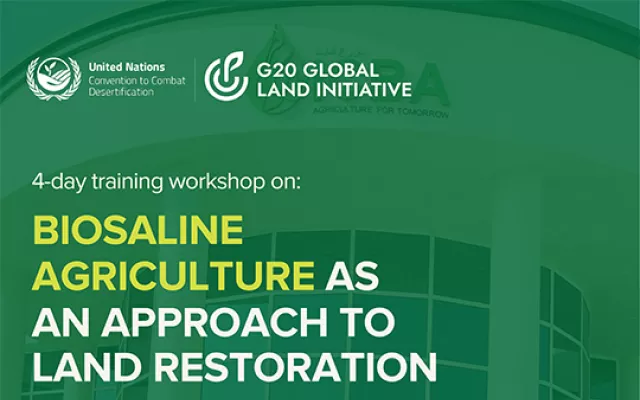ICBA joins global climate research initiative
21 January 2016
With headlines this week that 2015 was the warmest year on record, concerns over climate change impacts are ever increasing requiring policymakers and scientists to collaborate closer than before. Decision-makers need data to help them identify vulnerabilities and risks to prioritize the needed actions, investments and developments. Evidence-based knowledge on future conditions is important as national policies on climate change mitigation and adaptation are shaped and defined.
Global Climate Models (GCM) are the starting point for predicting climate change and understanding the future conditions but, these models lack precision and accuracy to be really useful for country or local level decision-makers. The data generated by a GCM does provide reliable prediction information on a scale of around 100 by 100 km. This is good for continental or large regional analysis but the area covered means within this wide-ranging landscape there is greatly varying potential for floods, droughts or other extreme events. Mitigation and adaptation strategies need to be developed at more national levels.
This is where Regional Climate Models (RCMs) come into play. These provide projections with much greater detail and more accurate representation of localized extreme events. RCMs and Empirical Statistical Downscaling (ESD), applied over a limited area and driven by GCMs, can thus provide information on much smaller scales providing more of the evidence needed to support detailed impact and adaptation assessment and planning.
It is against this background that the Coordinated Regional Climate Downscaling Experiment (CORDEX) initiative was developed. It is a global enterprise in which participating centers provide more accurate data at finer scales and more adapted to local conditions.
The purpose of this initiative is to better understand relevant regional and local climate phenomena, their variability and changes, through downscaling, and to evaluate and improve regional climate models and dynamical downscaling techniques.
CORDEX thus provides climate data that can be used by scientists to assess climate change effects on different sectors, including agriculture and water among others. It is a global initiative where scientists work together to downscale climate data, including temperature and rainfall, for different regions of the world.
For several years now, the Dubai-based International Center for Biosaline Agriculture (ICBA) has been leading the MAWRED program to develop and improve climate, water and crop models more adapted to the conditions of the Middle East and North Africa (MENA) region and generate more accurate data to support decision-making at different levels, from farm to national and regional.
ICBA is already generating climate data for the MENA region at high resolution, including Palestine, Lebanon, Jordan, Tunisia, Iraq, Yemen, Senegal and Mauritania. This data will help policymakers to develop more efficient strategies on water and food security. The center is now building a regional knowledge hub on drought monitoring and management.
As part of this work, ICBA has recently become one of the only four centers from the MENA region to join the CORDEX initiative. It is hoped that this will help to share more knowledge and refine regional climate models for the MENA region.
ICBA is also working to build new partnerships with national, regional and international research and donor institutions to develop the MAWRED program into a truly regional platform for knowledge supporting decisions and policies for a more food and water-secure future under a changing climate.










